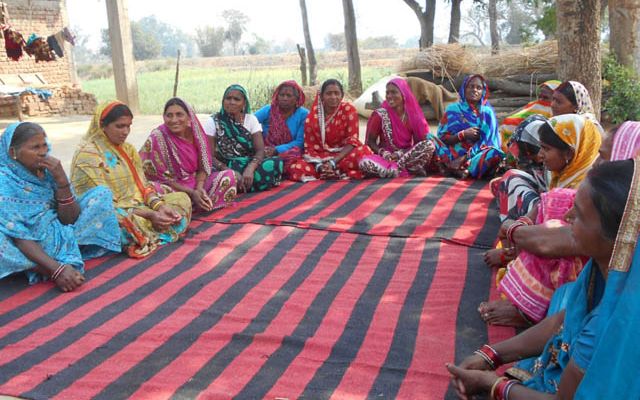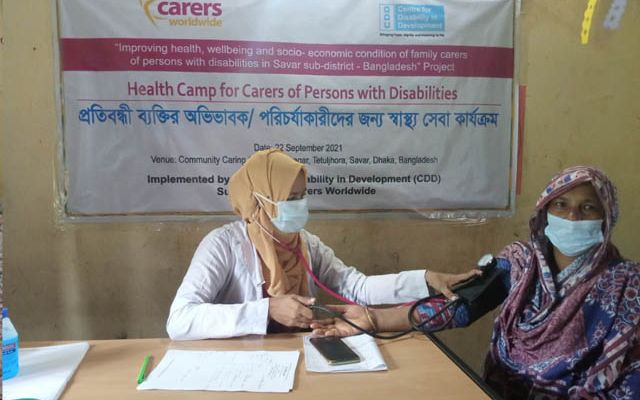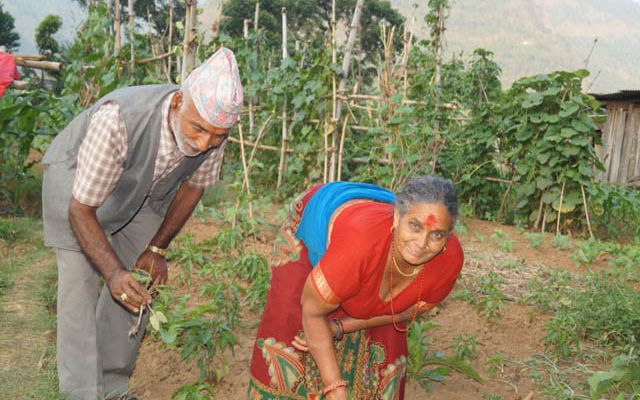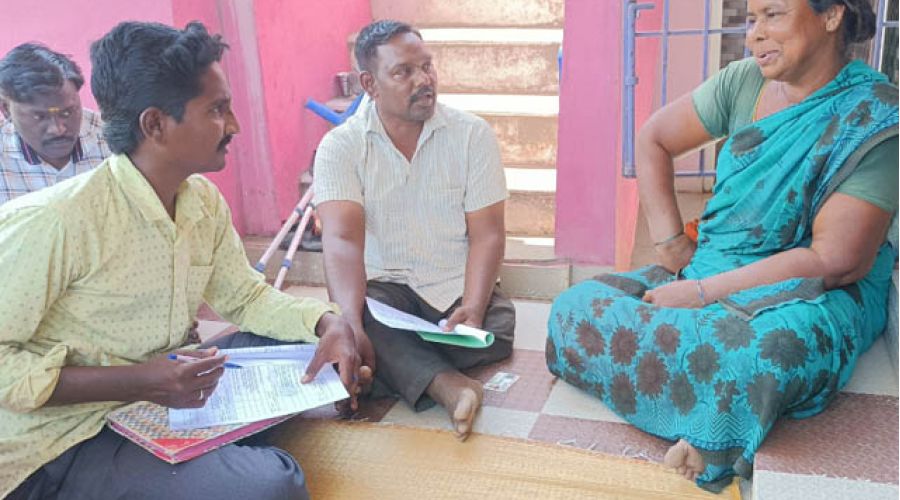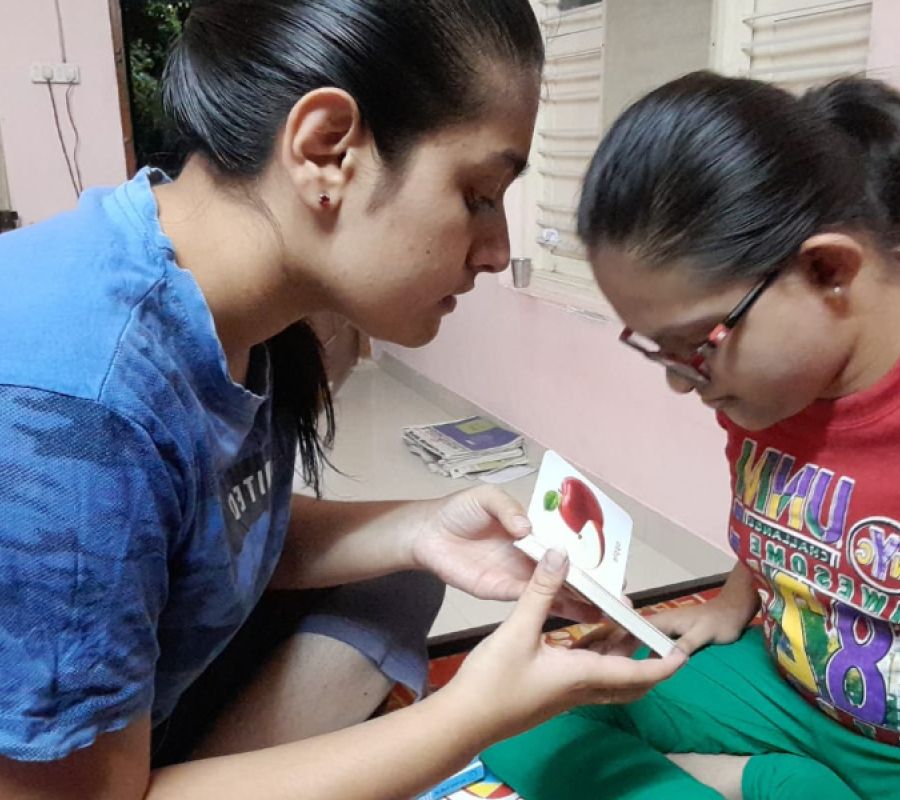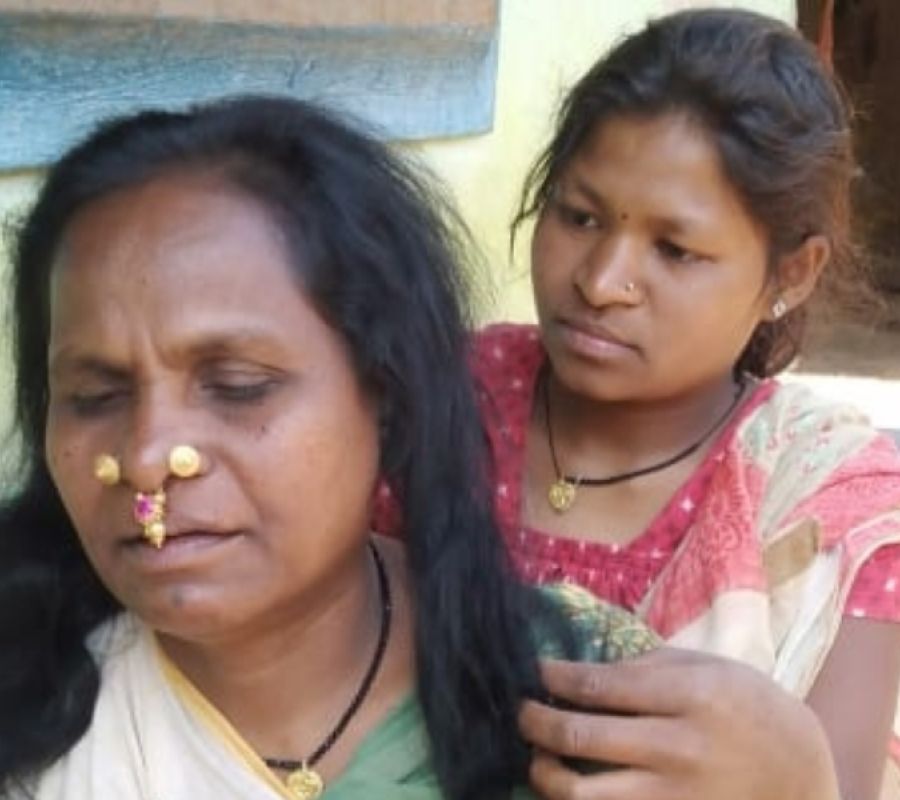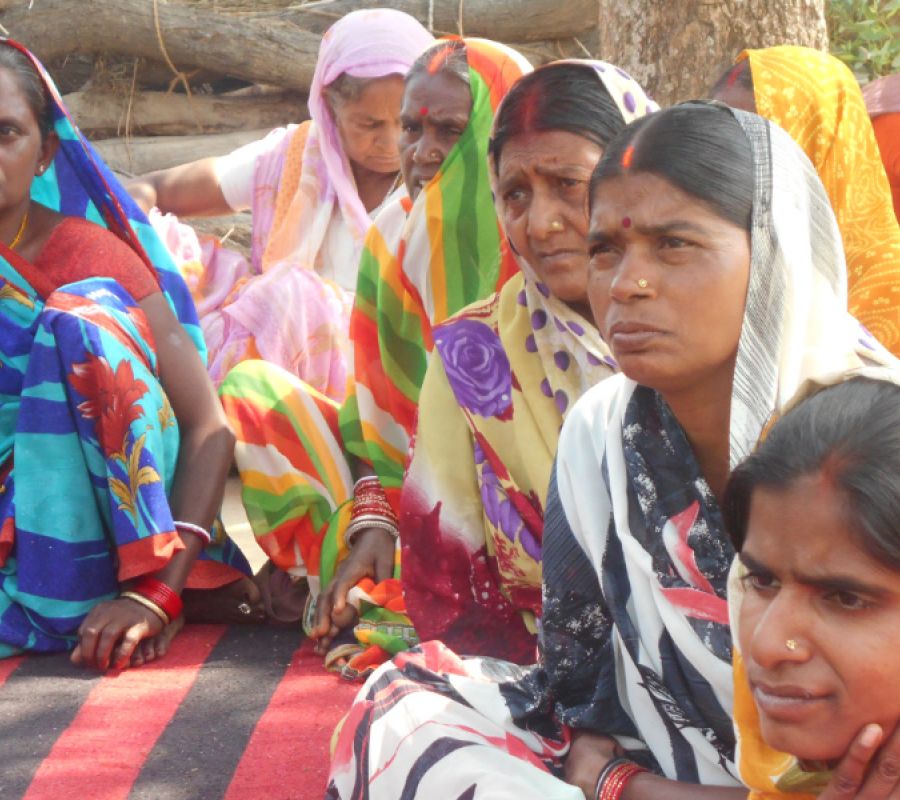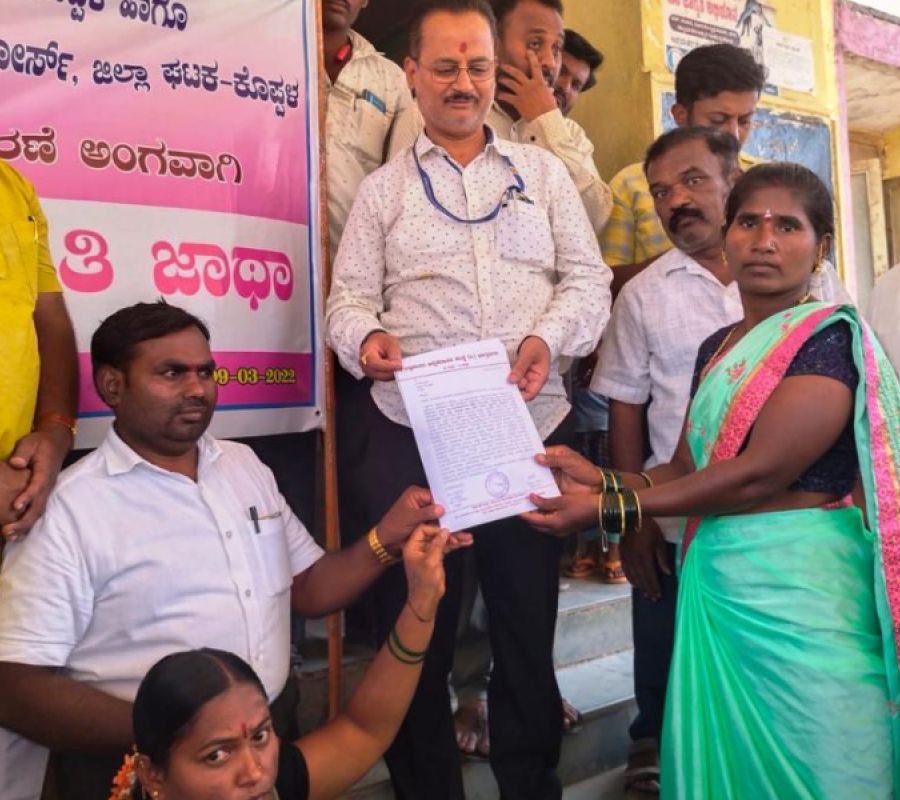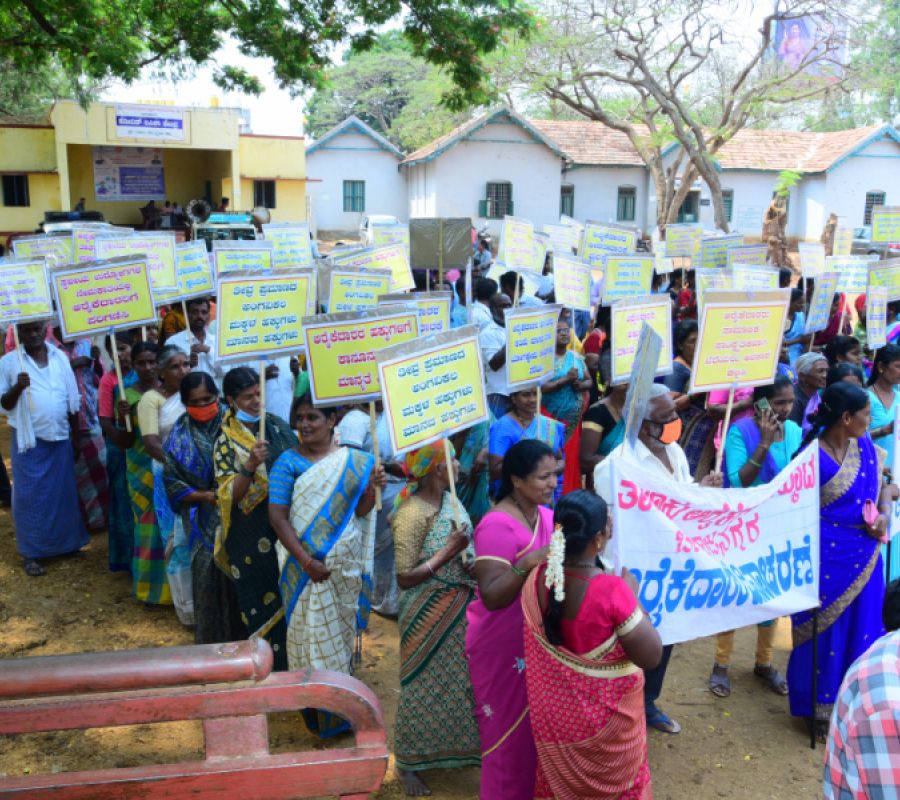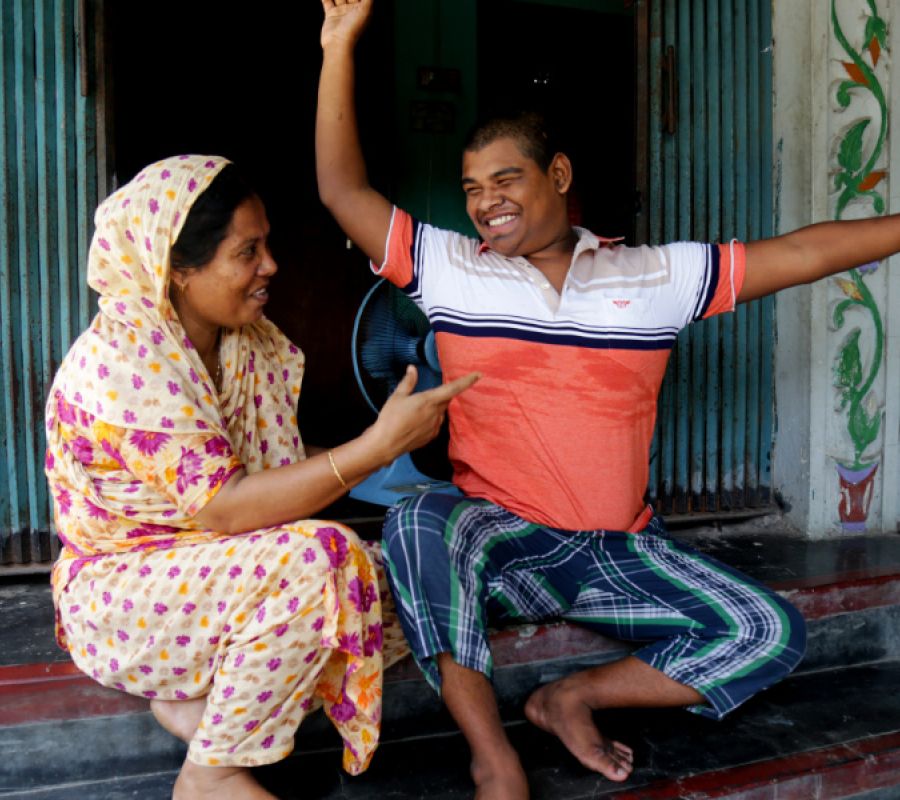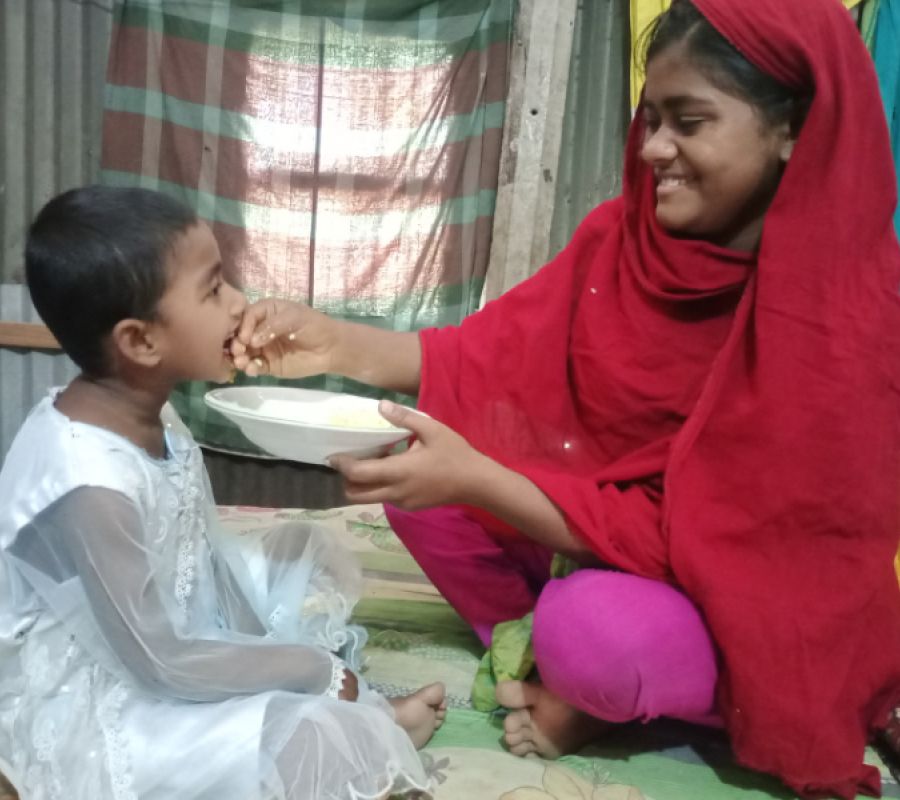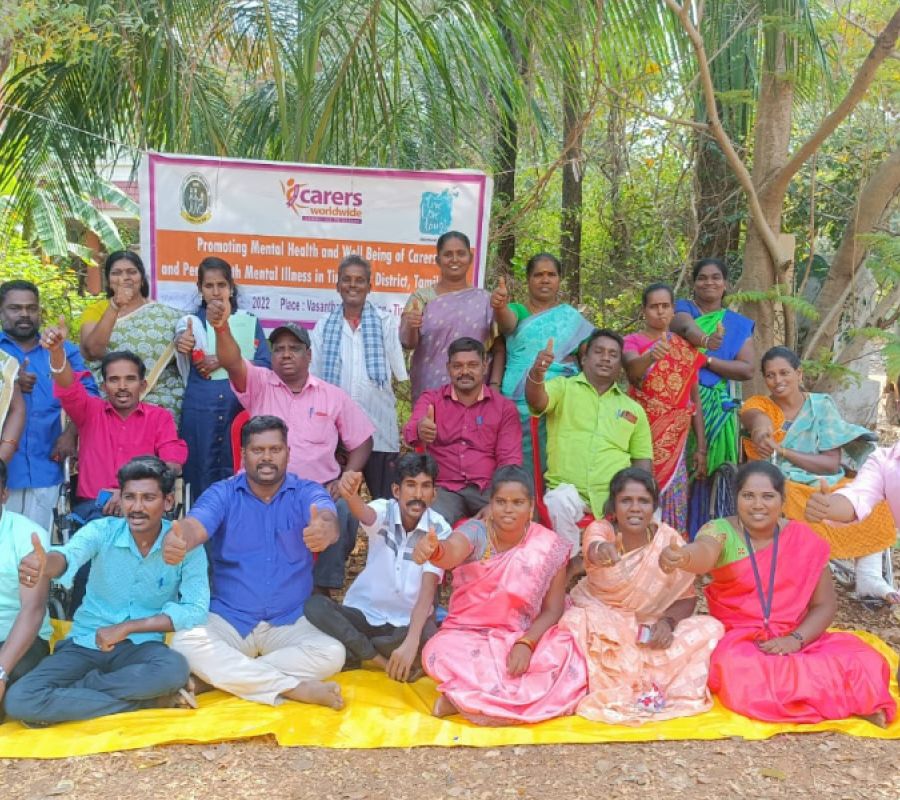Catalysing A Global Carers’ Movement
To mark our 10-year anniversary, Carers Worldwide commissioned MzN international to undertake a thorough review of Carers Worldwide’s impact over the past 10 years, together with an investigation into the Social Return on Investment of the Carers Worldwide Model.
Explore the report through the links below and download the full report here.
“Carers Worldwide’s group approach is quite unique. In many ways it is not too dissimilar to what you may find in the UK, but to establish such a framework in low income settings, is really ground-breaking”
Explore Our Report Below
Objectives and Methodology of the Report and SROI Findings
Objectives
To mark their 10-year anniversary, Carers Worldwide commissioned MzN international to undertake a thorough review of Carers Worldwide’s impact over the past 10 years, together with an investigation into the Social Return on Investment of the Carers Worldwide’s Model.
The review completed to inform this report makes it crystal clear that investing in carers generates positive outcomes for many: for them, the people they care for, their family members, local health systems, communities, and government representatives.
The SROI analysis reveals the extent of the exponential return these services generate: for every £1 invested, Carers Worldwide’s Model generates £7.79 of social and material return.
Not only do carers generate crucial value, they are holding entire systems of care together, being effectively indispensable chain links without which these systems would indeed collapse. The Carers Worldwide Model stems from this very observation and brings crucial insights into how a simple, holistic model of intervention can make a significant positive difference in the health, social and economic areas of carers’ lives.
Methodology
Traditionally there may be a recognition or understanding that carers perform essential tasks and services for their families and communities. However, more often than not, people would not be aware of the extent of the value, both societal and economic, that carers generate for society. This is compounded by carers often not feeling that they are doing something extraordinary. The SROI exercise aims precisely to address this gap. Mzn conducted a retrospective SROI assessment on the full scope of work undertaken by Carers Worldwide, aiming to determine what the full impact of the work was for those that benefit.
This exercise relied on data such as the costs of delivering activities from Carers Worldwide as well as inputs from a total of 21 carers, relatives receiving care, family members, community members, government representatives and partner organisation staff in India and Bangladesh who were interviewed in April 2022 and helped us critically validate or uncover anew the most valuable changes and outcomes experienced. It is the stakeholders that hold the true understanding of the value created by programmes. This allows to challenge assumptions about what creates the most meaningful value and uncover unsuspected areas of change in the lives of all that are directly or indirectly impacted.
Our core values
We Challenge
We constantly look for ways to innovate and evolve, and challenge others to do the same.
We Ignite Imaginations
We inspire ambition and bold ideas to tackle the issues facing carers everywhere.
We Amplify Voices
We listen to and value everyone's voice, amplifying the voices of those currently unheard.
We Inspire Change
We empower people and organisations to make lasting changes for carers and their communities.
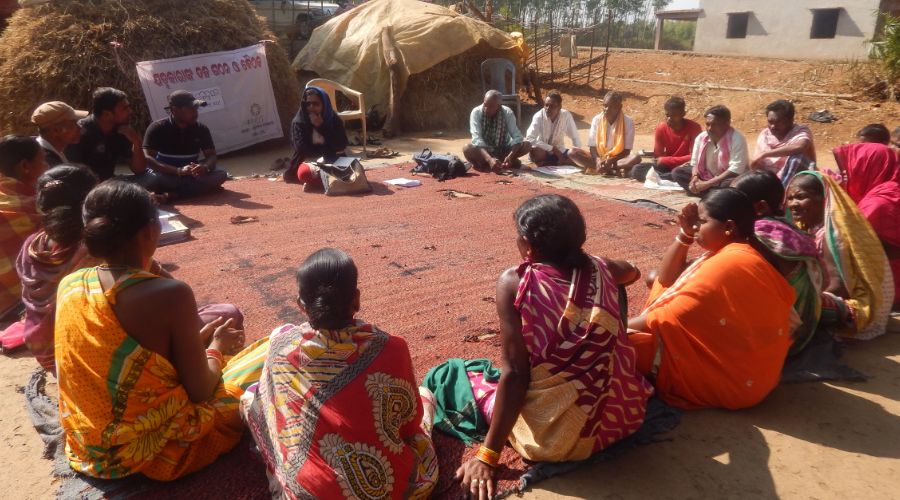

Leaving no carer behind
Making carers visible
So Who Are the Carers?
Worldwide the most accurate answer is that carers could be anyone, or rather anyone can become a carer at some point in their lives.
But in the low and middle-income countries where Carers Worldwide has focused its efforts to date, a few important trends and characteristics emerge: these are families who do not have the resources to buy extra help, and simultaneously tend to live in areas where the government also does not provide much to help them.
- On average 84% and sometimes up to 97% are women.
- They tend to be between 20 and 60 years old, but can be as young as 11 or as old as 80.
- 77% of carers live together with more than two other adults yet carers recurrently report not having anyone who could relieve them so they can go to work, which hints at the weight of responsibilities placed on ‘primary carers’ in many families.
- The carers supported by Carers Worldwide and their local partners in India, Nepal and Bangladesh tend to be located in rural, remote communities generally associated with limited or non-existent public services and infrastructure.
- Carers Worldwide routinely target families with the lowest income and/or facing additional marginalisation due to status, disability, or caste. As a result, carers supported in their programmes tend to live in poverty or extreme poverty.
SROI of health and wellbeing interventions
The services delivered by Carers Worldwide and local partners include:
- Free health checks (health assessment camps) organised in partnership with local health clinics, typically conducted alongside carers support groups or project run community caring centres to take advantage of groups of carers already meeting.
- Training local doctors and health workers to understand and take account of the needs of and constraints on carers.
- Free or highly subsidised medicines Free or subsidised counselling through the growing network of barefoot counsellors and local specialists (where those are available in urban settings).
- Training of community health workers, partner staff and carer representatives in barefoot counselling.
- Disseminating accurate information to carers about where to access affordable treatment or request support.
The SROI for Carers Worldwide’s interventions to support carers’ health and well-being included the value for:
- Reduced anxiety and depression.
- Improved physical health.
- Access to treatment or treatment for persons cared for.
- Increased income resulting from increased productivity/reduced absence at work.
Health Provisions in Practice
At the end of a three-year project backed by the Commonwealth Foundation and supporting “the recognition and inclusion of carers of the disabled and mentally ill in India”, a final evaluation in 2017 found that carers experiencing anxiety or depression had dropped to 9% (from 61% at baseline) and that the intervention had significantly relieved their health worries (from 55% at baseline to 16%).
A project supporting 1578 carers in rural and isolated districts in western Nepal reduced the number of carers experiencing physical ill-health from 69% to 33% and those experiencing mental ill-health from 77% down to 33% (2017).
In Bangladesh, 97% of carers also reported improvements in physical and mental health (Impact Report 2021)
"Now carers see taking care of themselves as an essential part of taking care of the person cared for”.
SROI of income, livelihoods and education interventions
The services delivered by Carers Worldwide and local partners include:
- Delivering training to increase carers’ marketable skills such as literacy support, business development skills or budgeting.
- Facilitating access to government livelihood training schemes.
- Providing equipment or start-up capital to purchase materials, equipment or livestock.
- Training employers to propose more accommodating working hours to support carers.
- Supporting child carers to resume education, including paying for school fees, extra tuition to help them to catch up lost learning and running peer support clubs to allow child carers to meet each other.
The SROI for Carers Worldwide’s interventions to support carers’ improved access to livelihoods included the value for:
- Increased income.
- Improved living conditions.
- Enhanced feeling of self-esteem / reduced anxiety.
- Increased skills.
Over 10 years, 8,834 carers have taken part in livelihoods activities.
Innovations for child carers
The impact of tailored training and flexible working arrangements is evident for all carers, but it is worth mentioning the additional benefits reaped for specific groups. Carers Worldwide has also supported a uniquely vulnerable group that see their life trajectories deeply affected by the caring responsibilities they have been entrusted with: child carers. Just like adult carers see their ability to complete paid work compromised by the time and resources spent looking after someone, children’s education prospects are deeply affected by the often-irreconcilable demands deriving from caring. To resolve this, Carers Worldwide supports its local partners to facilitate alternative care arrangements, lobby schools to raise awareness among teachers and train community-based services to better support child carers, allowing them to re-enrol into education and access tailored support which minimises disruption to school attendance and learning outcomes.
Over 10 years, 312 young carers are back in education.
SROI of socialisation and peer support interventions
The services delivered by Carers Worldwide and local partners include:
- Mapping to identify carers and forming local support groups.
- Delivering training in human rights, leadership, facilitation skills.
- Conducting regular activities in support of/together with support groups.
- Facilitating groups access to savings schemes, loans or benefits.
- The setting up of community caring centres.
The SROI for Carers Worldwide’s interventions setting up and strengthening carers support groups included the value for:
- Access to key information on eligible benefits, schemes…
- Access to peer support and collective problem-saving.
- Reduced isolation, feelings of loneliness.
- Opportunities for socialisation.
- Access to respite breaks.
Just like carers face significant time and resource constraints on their ability to pursue essential activities, unsurprisingly they also commonly find themselves with little to no time for socialisation or respite, with the consequent risk of becoming socially isolated as a result of their caring role. Globally but especially in the regions where Carers Worldwide works, this situation is further compounded by misconceptions and the stigma often surrounding disability and mental illness. In concrete terms, this means carers feel less inclined to enter the public sphere or attend social gatherings, let alone publicise their difficulties or ask for help. In a consultation conducted among 334 parents of children with cerebral palsy, Carers Worldwide found that carers’ greatest concern was, for 76% of them, not receiving support from friends and family.
Understanding the huge unmet needs of carers in accessing emotional support, a central feature of the Carers WorldwideModel has been the creation of carer support groups.
Meeting monthly for a couple of hours, the carer-to-carer support meetings offer a welcoming and relaxed space where participants of the same locality or village come to know that they are not alone, find encouragement and access practical advice. The meetings may take place in a community, under a tree or outside the home of a member. The groups, each one made up typically of 10-15 members, allow carers to share their immediate concerns, reflect on their challenges and leverage collective problem-solving. Participants have been able to tap into the collective wisdom of others facing similar challenges in the provision of care, and to hear, often for the first time, about grants, insurances and schemes available to them.
Spreading and consolidating steadily from 15 groups first set up in India in 2013, Carers Worldwide and partners today count 631 groups collectively supporting 11,358 carers.
SROI of visibility and representation
The services delivered by Carers Worldwide and local partners include:
- Delivering training in human rights, facilitation and leadership skills to groups.
- Conducting regular activities in support of/together with support groups.
- Organising carers day celebrations and other high-profile events.
- Facilitating meetings with key stakeholders including State officials.
- Convening regional civil society workshop for learning and exchange.
The SROI for Carers Worldwide’s interventions promoting the visibility and recognition of carers has taken into consideration the value of:
- The benefits and allowances secured as a result of revised legislation.
- The increased visibility and funding gained for carers initiatives.
- The increased social cohesion and participation of carers in community activities.
- Increased knowledge of carers’ needs at government level.
For carers to be truly empowered, they need the information, capacity and space to articulate demands and influence government, and in turn to promote systemic and lasting change.
Understanding how a widespread lack of awareness about their rights directly undermines carers’ ability to claim and access services they might be entitled to, the Carers Worldwide Model harnesses support groups as key entry points to supply crucial information about allowances, benefits or schemes available to carers. Through research and interactions with local authorities and policy makers, the organisation has mapped key pieces of legislation directly relevant to the situation of carers and the persons within their care, highlighting key provisions and summarising in simple and accessible language ways to leverage them. As unpaid family carers by their very nature do not access financial compensation, ensuring households do not miss out on welfare claims is all the more crucial with both carers and persons cared for benefiting.
Over the past 10 years, Carers Worldwide have unlocked £850,000 worth of grants, allowances and benefits for family carers supported. In Karnakata State in India, intensive advocacy efforts to raise awareness of carers’ eligibility to receive an allowance under the Rights of Persons with Disability Act, resulted in over 1,500 carers securing the allowance for the very first time.
Towards a carers-led movement
Today, Carers Worldwide’s power and influence rests on 631 village groups, organised in over 40 cluster groups at blocklevel, collectively representing the voice of around 12,000 carers. They are further represented by 8 Carers Associations in India – four at divisional level, four at district level – three in Nepal and one in Bangladesh.
Registered as independent entities with local authorities, the Carers Associations are increasingly accessing local funding sources to further sustain and expand their reach. They also organise and take part in roundtables and high-profile events such as Carers Day Celebrations or the International Day of People with Disabilities. Through consistent investment and support to build their organising, lobbying and influencing capacity, the Carers WorldwideModel enables carers’ grassroots demands and preoccupations to be elevated to duty-bearers and gain visibility and traction in decision-making spaces.
Carers Worldwide’s focus on equipping carers to influence and shape decisions affecting them has critically paved the way for a carer-powered movement, effectively capable of advocating for the rights of carers and taking matters into their own hands.
“What is really unique about Carers Worldwide is the combination of their ‘boots-on-the-ground’ work and engagement with policy-makers”
In plain sight: Carers Worldwide’s contribution to the Global Goals
Using the 2030 Global Goals as a key reference framework, it is evident that Carers Worldwide’s contributions are cross-cutting several Sustainable Development Goals.
Carers naturally represent a significant segment of national populations entitled to quality, relevant and affordable healthcare in their own rights, making investing in their well-being directly relevant to SDG3.
With recent research estimating that greater investment in care could create almost 300 million jobs by 2035, it is clear that supporting carers to secure adequate and practical livelihoods is also key to realising inclusive growth, and decent and productive employment for all (SDG8), as well as to reducing poverty (SDG1).
The organisation’s tackling of both barriers to the job market and the effective realisation of carers’ right to benefits and allowances, makes them an important contributor to reducing inequalities (SDG10) too. Other specific initiatives such as those in support of child carers, ensuring they do not have to make a critical choice between their caring responsibilities and attending school further supports progress towards SDG4.
Last but not least, with the overwhelming majority of the providers of care being women, Carers Worldwide’s commitment and very mission to design, secure and deliver carer-specific services and policies, constitute an indisputable contribution to achieving the promise of SDG5: gender equality and empowering all women and girls.
Alongside the immediate benefits of raised income, feedback from women carers taking part in Carers Worldwide’s programmes highlights the transformative change in household dynamics following on from participating in carers groups and conducting income-generating activities. An Evaluation of Carers Worldwide’s work in Nepal noted that 80% of women carers participating were now in charge of decisions in the household because of income-generating opportunities they receive.
The next 10 years: sparking a caring revolution
With the population in need of care projected to continue steadily increasing worldwide by 2050 as a result of ageing, other shifts such as changing family structures, labour force migration and increased female participation in the workforce, the demand on family carers is projected to increase particularly dramatically in low-and middle-income countries.
The size and scale of the challenge ahead calls for the quickest and most efficient ways to achieve the level of change needed and Carers Worldwide is uniquely positioned to support ‘mainstream’ organisations to include carers in their existing programmes, incorporate carers-specific services, or both. Two groups of organisations appear as strategic allies to achieve impact at scale moving forward. Both Disability-focused and women’s rights organisations, already partners of choice of Carers Worldwide offer prime entry points to unpaid family carers.
This could be easily achieved through training and knowledge sharing, with an opportunity for Carers Worldwide to sell its expertise and model as part of a social franchise or consultancy package.
In the ecosystem of healthcare, and the care economy in particular, the private sector is poised to become an increasingly important stakeholder.
Already in its early stages, Carers Worldwide’s endeavour to train employers to deploy “carer-friendly” policies has significant potential to continue expanding livelihood opportunities for carers and enabling carers already in work to remain employed, whether they live in rural areas or more urban centres.
Finally, the commitment of Carers Worldwide to respond to unique individual needs resulting from the variety and diversity of experiences of caring for a loved one is set to lead the organisation to continue developing inclusive and innovative solutions that respond to carers’ ever evolving needs.
Carers themselves will continue leading the way to voice their demands for equality and recognition, drive change and steer the direction of the organisation. The incredible gains in visibility and representation Carers Worldwide has achieved for and with carers in just ten years demonstrates the capacity of carers to organise, challenge injustice and write a different story for themselves and society. Steady investment in the capacity of carers groups, cluster groups, Carers Associations and all the way to national alliances of carers, ensuring resources and advocacy capacity are well channelled, and the safeguarding of civil spaces all have the potential to unlock unyielding progress for carers and their families. A global carers’ movement is mostly truly well underway.
“Whatever services we initiate, carers are part of the solution….Carers act as a bridge between families and service providers. Not looking at them will never be sustainable”.

